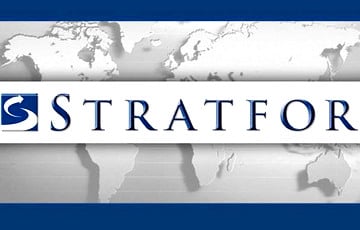Stratfor: "Last Thing Russia Wants Is Confrontation with Turkey"
- 29.12.2015, 8:50
- 11,422

Stratfor, the U.S.-based geopolitical intelligence and consulting firm, claims that the last thing Russia wants is a confrontation with Turkey.
"The last thing Russia wants is a confrontation with Turkey, the gatekeeper to the Black and Mediterranean seas, but confrontation is something it cannot avoid. Russia risks mission creep this year as it increases its involvement on the Syrian battlefield," Stratfor said in its Annual Forecast 2016.
But the Islamic State will be only part of Moscow's focus in Syria; Russia will try to draw the United States toward a compromise that would slow a Western push into Russia's former Soviet space, the forecast says. The United States will be willing to negotiate on tactical issues, but it will deny Moscow the leverage it seeks by linking counterterrorism cooperation to a broader strategic discussion. The U.S. administration will work instead to shore up European allies on the front lines with Russia.
Regardless of the participants' secondary motives, an intensified military campaign against the Islamic State will surely damage the militant group's core. However, the fledgling caliphate will not be eradicated this year. A lack of reliable ground forces will hamper the anti-Islamic State campaign. And the more the Islamic State's conventional capabilities weaken, the more actively the group and its affiliates will try to conduct terrorist attacks outside the Middle East to maintain its relevance. This in turn will drive competition within the jihadist landscape as al Qaeda factions in the Arabian Peninsula, the Maghreb, West Africa and South Asia try to keep pace.
According to the forecast, the jihadist threat will fuel Islamophobia in the West and catalyze the fragmentation of Europe. Border controls and calls for preserving national identity will dilute the EU principle of allowing free movement of people. Closed borders will create a bottleneck of migrants in the Western Balkans, a region already rife with ethnic and religious tension. But the main story in Europe for 2016 will center on France and Germany, the two pillars of the European Union. Both will be preparing for 2017 elections, and both are leaning in a more nationalist and Euroskeptic direction. Over time, Germany will become more outspoken and much less willing to compromise on matters of EU integration.
The continuation of quantitative easing and another year of low oil prices will have a palliative effect on the deeper frictions in Europe as global commodity markets continue to suffer. The addition of Iranian oil to the market in the first half of the year will offset a drop in U.S. production. Any change to Saudi Arabia's oil output would come later in the year, after Riyadh has assessed the price impact from Iran's return as well as the effect on U.S. shale producers. Any attempt by Riyadh to coordinate a drop in production with Kuwait and the United Arab Emirates would come only after this assessment. Regardless of Iran's impact, Saudi Arabia will still be prepared to take on more debt and draw down reserves to cope with low oil prices.
China will not bring about relief in commodity prices, either. Consumption growth will slacken as Beijing struggles to implement reforms amid growing dissent among the Party elite. Even as Beijing faces the threat of party factionalization, it will still have enough economic heft to offer incentives to Southeast Asian states to counterbalance a stronger U.S. security presence in the region.
Stratfor's analysts forecast that low commodity prices and rising U.S. interest rates, which affect currencies, will also spell another difficult year for much of Latin America. The threat of impeachment will hang over Brazilian President Dilma Rousseff and further sour the investment climate in Brazil in the short term. Argentina may have a new, reform-minded president, but his struggle with high inflation and foreign currency shortages means any moves to settle debt and to raise protectionist measures will be limited. In Venezuela, the end of Chavismo is near. An embattled United Socialist Party of Venezuela will eventually splinter under growing political and economic pressure, and the country risks defaulting on its foreign debt this year.
The defining events of 2016 will raise apprehension around the world, leading into what will likely be an even more tumultuous 2017 as an array of developing conflicts comes into sharper focus. The essential thing to bear in mind is that all these trends are connected. The U.S.-Russia standoff, surging nationalism in Europe, Turkey's re-emergence and other geopolitical currents will tie in to and feed off of one another.
"We will keep our eyes fixed on the bigger picture in 2016, for there is a much more complex one developing in 2017," Stratfor said.










